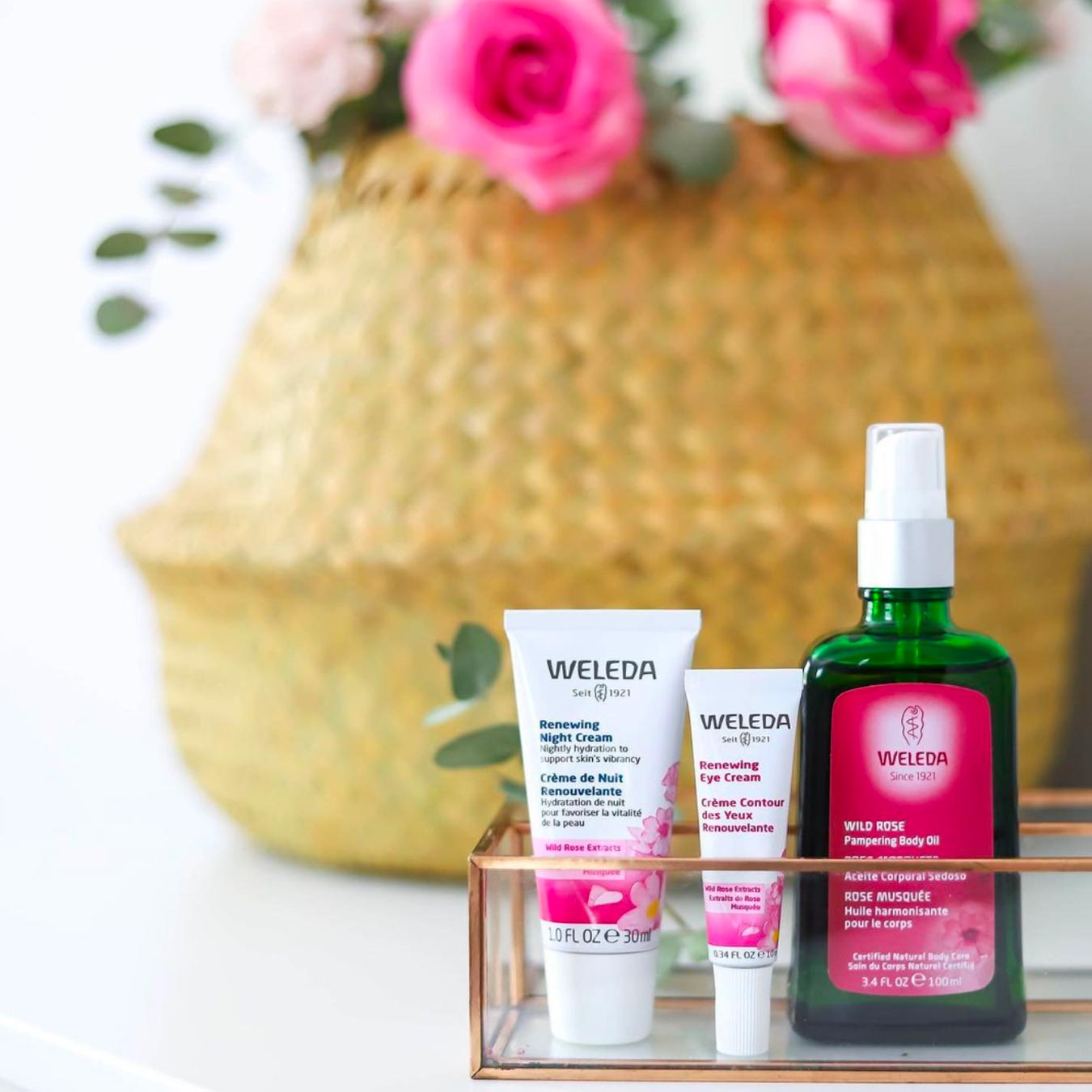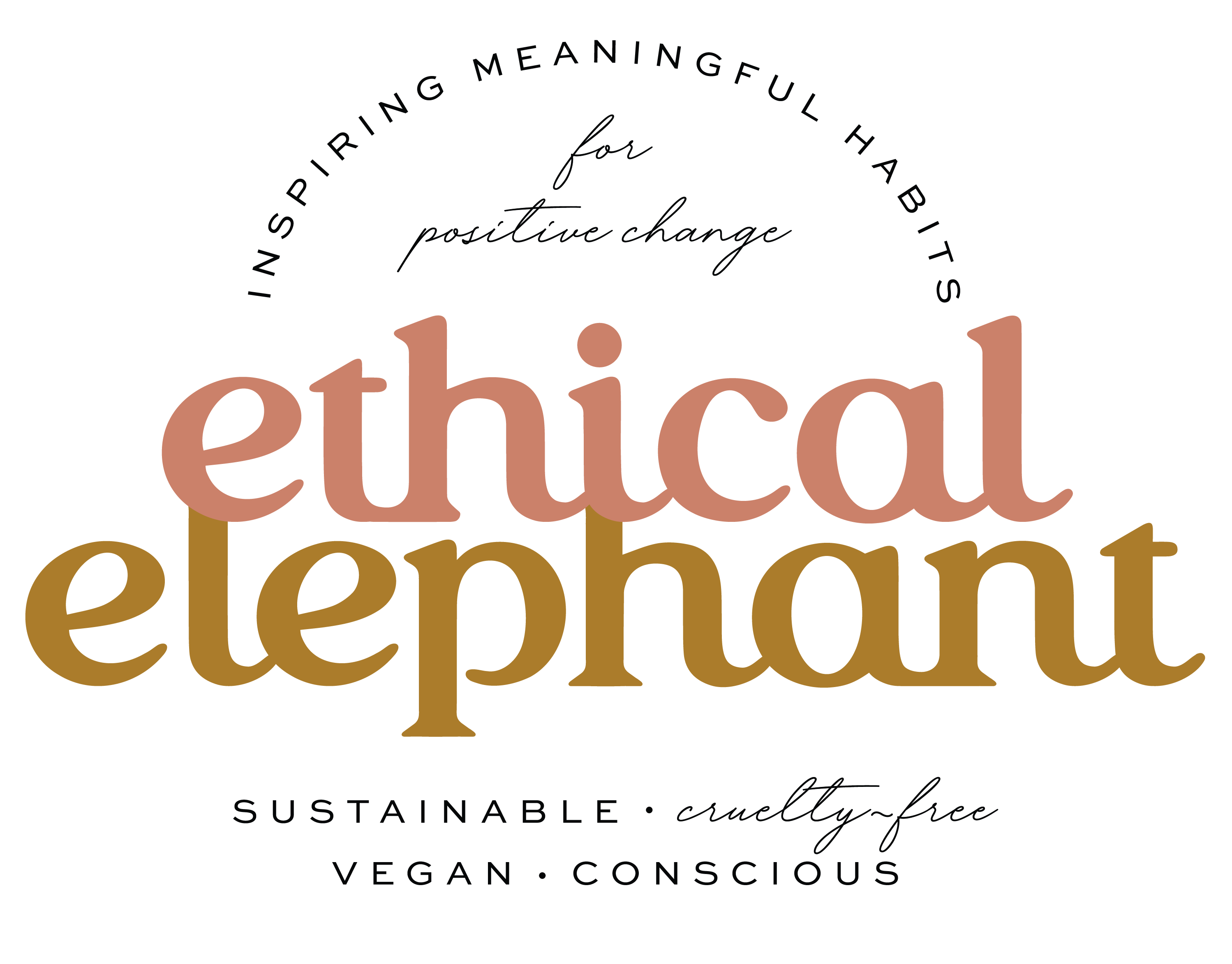This post may contain affiliate links that at no additional cost to you, I may earn a small commission.
You can find Weleda cruelty-free products at weleda.com, Ulta, Target, Dermstore, Walmart, iHerb, and Amazon.
Weleda is Cruelty-Free
Weleda has confirmed they do not test their products or ingredients on animals or ask others to test on their behalf. Their suppliers also do not test on animals, nor do they allow their products to be tested on animals when required by law.
By our standards, we would consider Weleda to be Cruelty-Free.
Below is a screenshot of what’s currently stated on Weleda’s website about its animal testing policy:
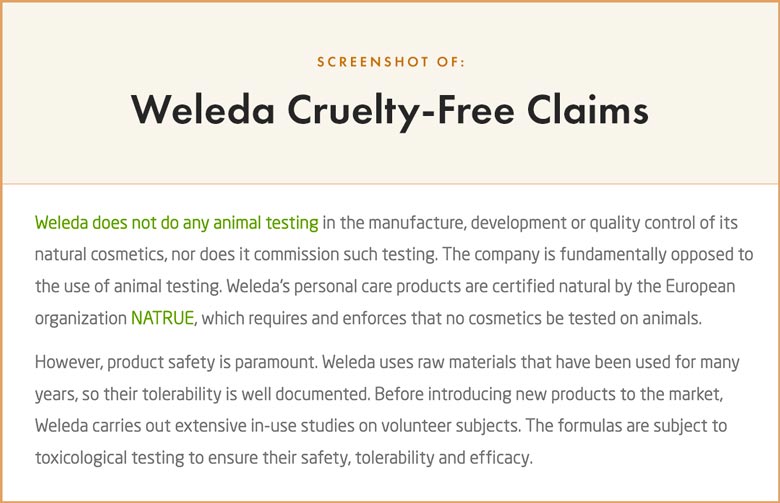
What About China’s Animal Testing Laws?
As of May 1, 2021, some imported ordinary cosmetics can be exempt from animal testing under certain conditions. However, for the most part, animal testing is still legally required for most imported cosmetics in 2022.
Weleda states they only sell their toothpaste and soap bars in China. But toothpaste and soap bars are not defined as “cosmetics” in China and therefore Weleda is not required to test on animals.
Weleda explains its position on selling its toothpaste and soaps in China on their UK website, stating:
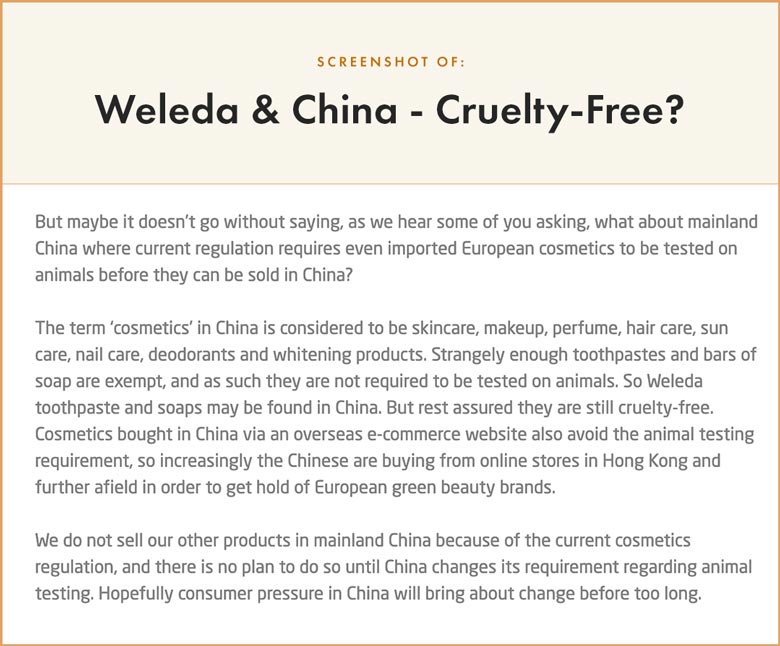
I also asked them about post-market animal testing which is where Chinese officials will pull a beauty product off store shelves and test it on animals. This is often done without the company’s knowledge or consent. Weleda kindly responding by saying,
“First of all, there is no reason to believe that our soaps and dental care products would be subject to after-market testing in shops, since they are in no way classified as products (such as cosmetics) for which animal testing is seen as necessary by the Chinese authorities. We know that these products are not subject to testing based on our local contacts, and this has also been confirmed to us by a representative of Humane Society International working in China, as well as the Institute for In Vitro Sciences, which collaborates with PETA. We follow regulatory developments in China closely, and we react immediately to any developments. If the current situation should change, any affected products would immediately be withdrawn from the Mainland Chinese market.Our presence in China has always been small, but we do think that it is worth being there if it means that we can spread awareness of the benefits of natural cosmetics, and meet the needs of Chinese consumers for this type of product. We would not be selling any product in China if we had reason to believe that animals would be hurt because of this.”
Cruelty-Free Policies
Note that there is no legal definition for the label ‘Cruelty-Free.’ It can mean different things to different people. But Cruelty-Free is generally used to imply no animal testing. More specifically, the ingredients, formulation, or finished product are not tested on animals at any stage of product development.
At ethical elephant, we always assess a company’s cruelty-free policy using our Cruelty-Free Checklist. This ensures no animal testing was performed by the brand itself, its suppliers, and by any third parties.
Also, note that Cruelty-Free and Vegan don’t always mean the same thing.
Weleda is Not 100% Vegan
‘Vegan’ in cosmetics can refer to an entire brand that is 100% Vegan or a specific product is vegan.
In the case of Weleda, not all of their products are vegan. But they have some products that are suitable for vegans.
How to know which of Weleda products are vegan?
All of Weleda’s vegan products are clearly marked on their website.
The following is a screenshot of what’s currently stated on Weleda’s website about its vegan claims:
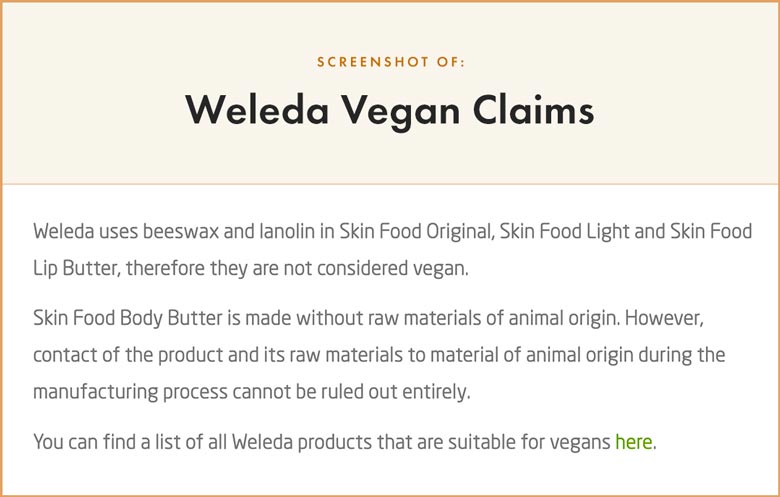
Vegan Policies
Similar to ‘Cruelty-Free,’ there is no standard or legal definition for the label ‘Vegan.’ But it’s usually used in the context to describe something that doesn’t contain any animal-derived ingredients or animal by-products.
Some common animal products used in cosmetics include carmine, lanolin, snail mucus, beeswax, honey, pearl or silk-derived ingredients, animal-based glycerin, keratin, and squalene.
There are plant-based and synthetic alternatives to animal-derived ingredients. But it’s sometimes difficult to know with certainty whether a product is vegan just by reading the ingredient list.
So it’s best to ask the company and manufacturers to ensure the ingredients they’ve chosen to use were from non-animal sources.
Where are Weleda’s products made?
I asked Weleda where their products are manufactured and they told me:
“Weleda’s three main sites are close together, with our headquarters in Arlesheim, Switzerland just a few kilometres from the Weleda site in Huningue, France. The production operation in Schwäbisch Gmünd near Stuttgart is just 250 kilometres north-east in Germany.”
I hope this article helped you to understand Weleda’s cruelty-free and vegan status and by choosing cruelty-free together, we can help end animal testing for cosmetics once and for all!






